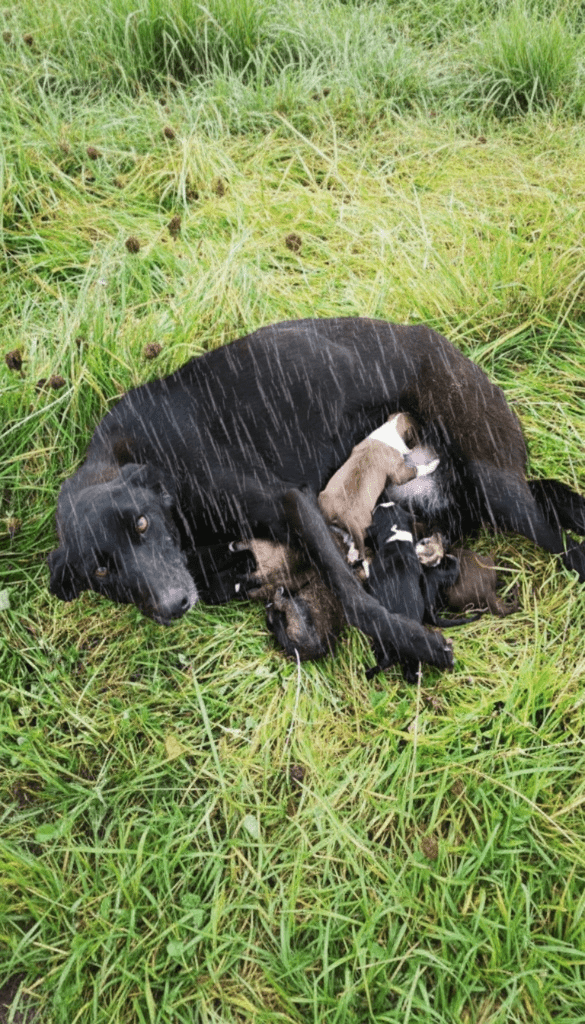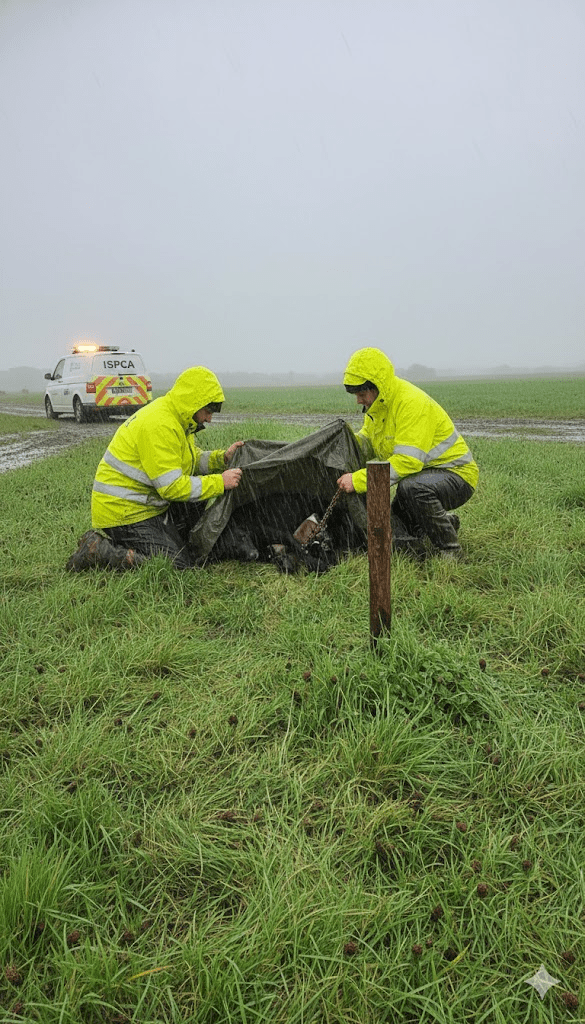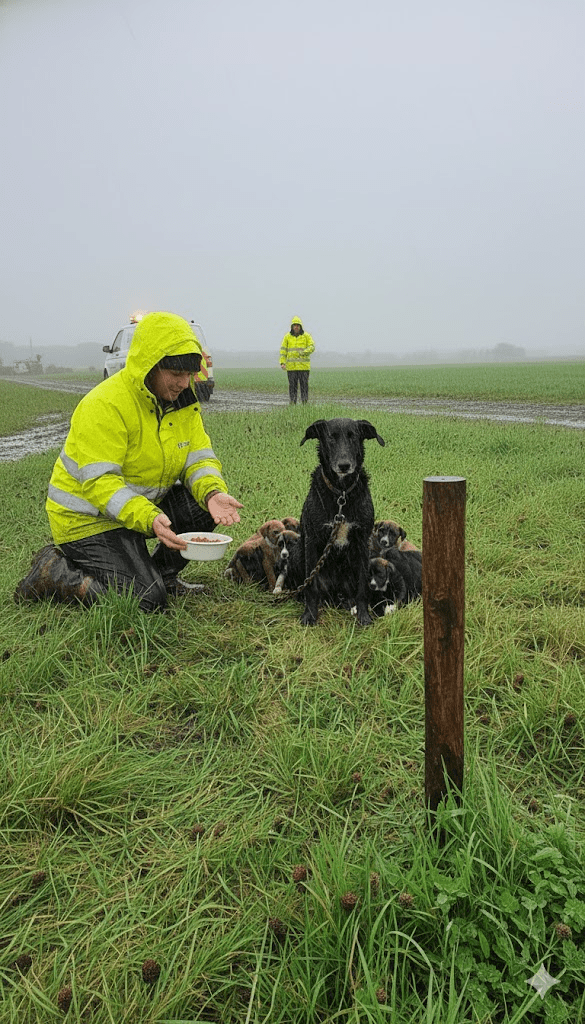The relentless Irish rain hammered down, turning the remote field into a sea of mud. It was a bleak, unforgiving landscape, and yet, amidst the desolation, a flicker of life struggled to endure. Chained and abandoned, a courageous mother lurcher lay exposed to the elements, her body a shield for her six tiny, vulnerable puppies. Their whimpers were barely audible above the wind, a desperate plea in a world that seemed to have forgotten them.

This heartbreaking scene was precisely what greeted an anonymous caller to the ISPCA, sparking a rescue mission that would be fraught with unexpected twists and turns, ultimately leading to a tale of resilience, hope, and the unwavering spirit of both animals and their saviors. The initial report was vague – a black dog, puppies, a remote location – but the urgency in the caller’s voice left no room for doubt. The ISPCA team, accustomed to confronting the darker side of human neglect, knew they had to act fast. The clock was ticking, not just against the elements, but against the fading hope of a mother fighting against impossible odds to protect her young.

When ISPCA Inspector Karen Lyons arrived at the coordinates provided, the scene was even more dire than anticipated. The field was not just remote; it was a bog, treacherous and unforgiving. The mother lurcher, her fur matted with mud and rain, lay protectively over her shivering brood. The chain, cruelly short, barely allowed her to shift position. Her eyes, filled with a mixture of fear and exhaustion, nevertheless held a fierce determination. It was clear she had been there for some time, enduring the biting cold and constant dampness. The puppies, barely a few weeks old, huddled close, their tiny bodies radiating the fragile warmth of new life. The immediate priority was to assess their health and, more importantly, to earn the trust of the traumatized mother. Every movement had to be slow, deliberate, to avoid startling her further.

The initial approach was met with caution. The mother, whom Karen later affectionately named “Willow,” eyed her warily, a low growl rumbling in her chest. Karen understood. Willow had every right to be distrustful of humans. Offering a bowl of warm, palatable food, Karen slowly extended her hand, speaking in soft, reassuring tones. The puppies, driven by hunger, began to stir, their small noses twitching at the scent. Willow, torn between her protective instincts and the desperate need for sustenance, hesitated. It was a tense standoff, broken only when one brave puppy, bolder than its siblings, tentatively sniffed at the bowl. Seeing this, Willow’s defenses began to crumble. She began to eat, her relief palpable, and as she ate, the puppies eagerly joined in. This small act of trust was a crucial turning point, signaling that the rescue might proceed more smoothly than initially feared.






